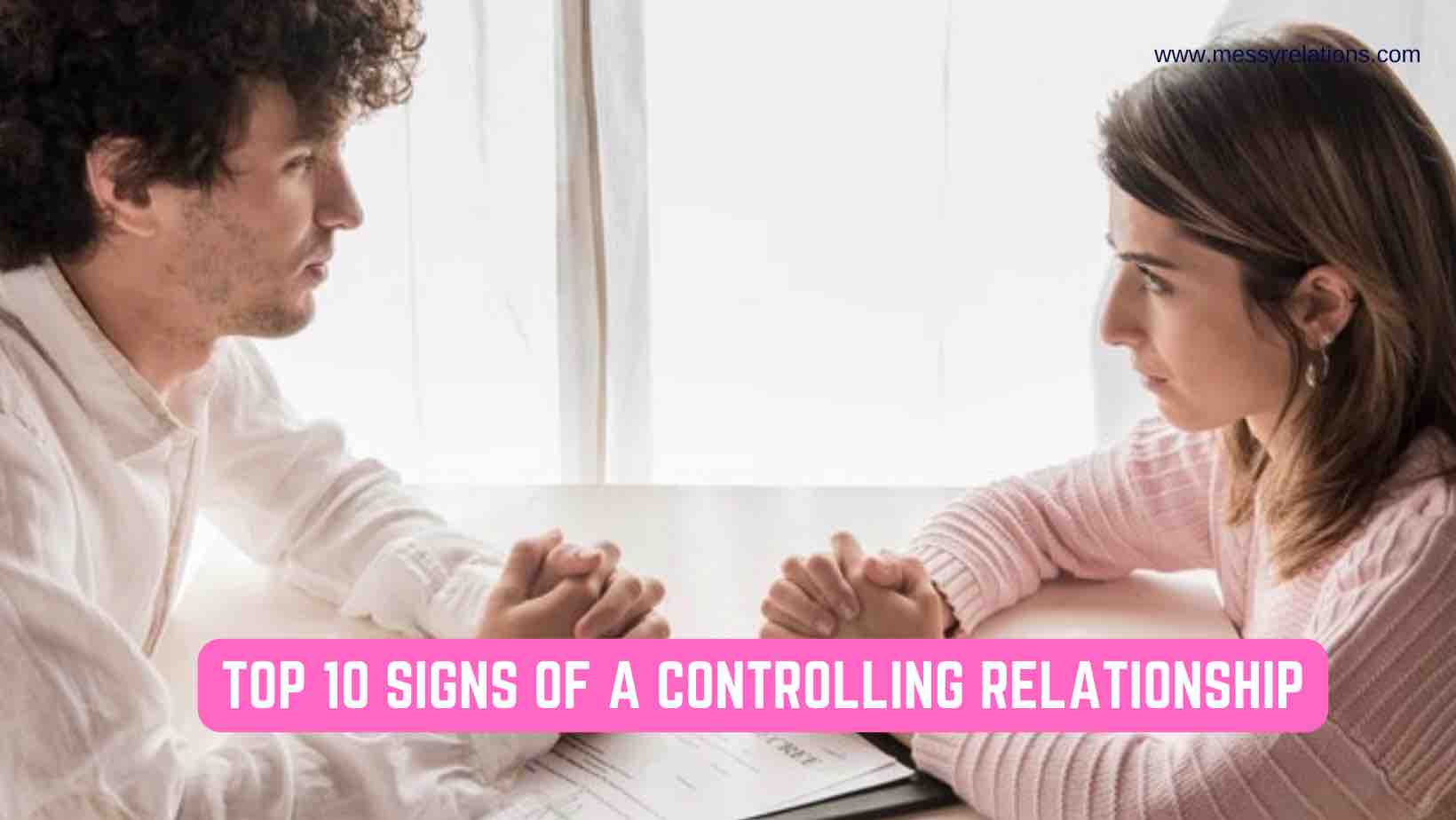Navigating relationships can be complex, and it’s vital to recognize when dynamics turn unhealthy. A controlling relationship, where one partner dominates or manipulates the other, can be particularly harmful. Understanding the signs of such a relationship is essential for everyone, as it helps in maintaining healthy boundaries and ensuring emotional well-being.
Sign 1: Excessive Jealousy
Jealousy, a common emotion, becomes concerning when excessive. In a controlling relationship, it often serves as a pretext for imposing restrictions, ranging from unfounded accusations of infidelity to resentment towards colleagues or friends. This behavior stems from insecurity and a desire to control, rather than from love or care.
Sign 2: Isolation from Friends and Family
Isolation is a hallmark of controlling relationships. The controlling partner may start by subtly criticizing your friends and family, gradually making you feel guilty for spending time with them. This tactic leads to a gradual cut-off from your support network, increasing your dependency on the controlling partner and limiting your social interactions.
Sign 3: Constant Monitoring or Checking In
Healthy relationships involve trust and respect for each other’s space. However, in a controlling relationship, one partner may constantly call or message, demanding to know your whereabouts, who you’re with, or what you’re doing. This behavior reflects a lack of trust and a need for control, veering far from normal concern.
Sign 4: Criticism of Appearance or Behavior
Criticism in a controlling relationship often targets your appearance, behavior, or choices, making you feel inadequate and dependent on the controlling partner’s approval. This constant criticism can erode your self-esteem and make you question your self-worth.
Sign 5: Financial Control
Financial manipulation is a powerful tool in controlling relationships. It may involve taking over your bank accounts, scrutinizing your spending, or even preventing you from having a job. This tactic limits your financial independence, making it difficult to leave the relationship or make autonomous decisions.
Sign 6: Making Decisions for the Partner
A controlling partner often insists on making decisions for you, from trivial to significant life choices. This behavior undermines your autonomy and shows a lack of respect for your opinions and desires.
Sign 7: Gaslighting or Emotional Manipulation
Gaslighting, a form of emotional manipulation, involves making you doubt your memories, perceptions, or sanity. This tactic is subtle and insidious, gradually eroding your sense of reality and self-trust, making you more dependent on the controlling partner for validation.
Sign 8: Threats or Ultimatums
Threats or ultimatums, ranging from self-harm to ending the relationship, are used to manipulate and control. This behavior is a clear sign of a controlling relationship, as it forces you to comply with the partner’s wishes under duress.
Sign 9: Belittling in Public or Private
Belittling, whether in public or private, is a tactic to undermine your confidence. It can involve derogatory comments about your intelligence, appearance, or capabilities. This constant belittling can significantly impact your self-esteem and sense of self.
Sign 10: Disregard for Boundaries
Respecting personal boundaries is essential in any relationship. In controlling relationships, partners often disregard these boundaries, pushing you to do things you’re uncomfortable with, or invading your privacy, like reading your messages or emails without permission.
Sign 11: Over-dependency
In a controlling relationship, one partner may foster an environment of over-dependency, where you’re made to feel incapable of making decisions or functioning independently. This dependency can be emotional, financial, or practical, limiting your ability to operate independently of the relationship.
Sign 12: Constant Dismissal of Your Feelings
A controlling partner often dismisses your feelings, opinions, or concerns, making you feel unheard and insignificant. This dismissal can manifest in ignoring your emotional needs, invalidating your feelings, or ridiculing your concerns.
Recognizing the signs of a controlling relationship is crucial in addressing and resolving these unhealthy dynamics. If you find yourself in such a situation, it’s important to seek support from friends, family, or professionals. Remember, a healthy relationship is based on mutual respect, trust, and understanding, and everyone deserves to be in a relationship where they feel valued and respected.
FAQs – Frequently Asked Questions
1. What are the common early warning signs of a controlling relationship?
- Early warning signs can be subtle, such as a partner frequently criticizing your choices, showing excessive jealousy, or insisting on constant communication. These behaviors might initially appear as deep care or concern but can escalate into more controlling patterns over time.
2. How does isolation from friends and family contribute to a controlling relationship?
- Isolation is a key tactic in controlling relationships. It begins with the partner criticizing or expressing discomfort with your social circle and escalates to limiting your interactions. This isolation creates dependency, making it harder to seek support or leave the relationship.
3. Can financial control be a sign of a controlling relationship?
- Absolutely. Financial control includes behaviors like monitoring your spending, restricting access to bank accounts, or preventing you from working. This form of control limits financial independence, making it challenging to make decisions or leave the relationship without the controlling partner’s consent.
4. What impact does constant criticism have in a controlling relationship?
- Constant criticism, whether about appearance, behavior, or choices, erodes self-esteem and can make one feel inadequate. This tactic is often used to diminish self-worth and increase dependency on the controlling partner for validation and approval.
5. How can one differentiate between caring and controlling behavior?
- Caring behavior respects boundaries and autonomy, whereas controlling behavior often disregards personal space, privacy, and individual choices. If the concern feels suffocating and limits your freedom, it’s more likely to be controlling than caring.
6. What steps can someone take if they realize they are in a controlling relationship?
- Acknowledging the situation is the first step. It’s important to seek support from trusted friends, family, or professionals. Creating a safety plan, setting boundaries, and exploring resources for emotional and practical support are critical steps towards addressing the situation.
7. How does emotional manipulation manifest in controlling relationships?
- Emotional manipulation can include tactics like gaslighting, where the controlling partner makes you question your reality, or guilt-tripping you for wanting independence. These tactics are designed to undermine your confidence and skew your perception of the relationship dynamics.
8. What role do threats and ultimatums play in controlling relationships?
- Threats and ultimatums are used to exert control and force compliance. They can range from threats of self-harm to ending the relationship and are a clear sign of manipulation and control, not healthy partnership dynamics.
9. In what ways can a controlling relationship affect mental health?
- Being in a controlling relationship can lead to anxiety, depression, lowered self-esteem, and a feeling of helplessness. The constant stress and emotional manipulation can profoundly impact mental well-being, making it essential to seek support.
10. Are there any resources available for those struggling in controlling relationships?
- Yes, numerous resources are available, including hotlines, counseling services, support groups, and legal assistance. Local community centers, mental health professionals, and online platforms also offer guidance and support for those in controlling relationships.




